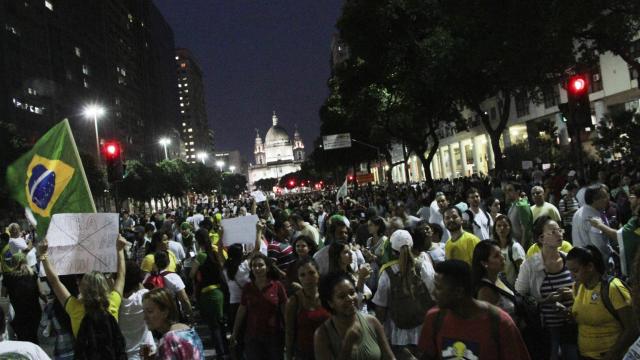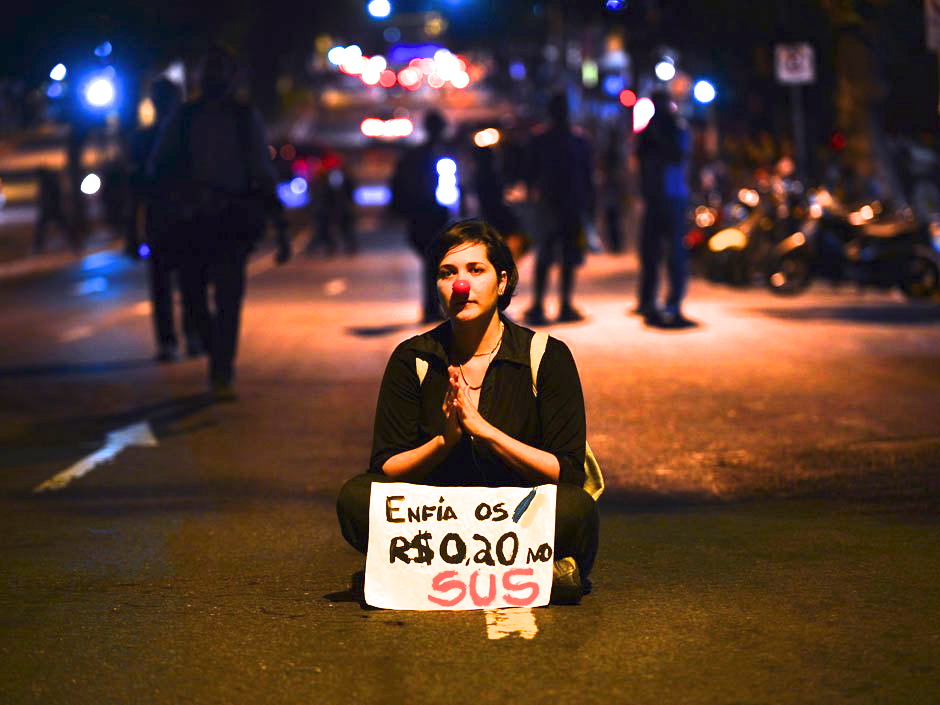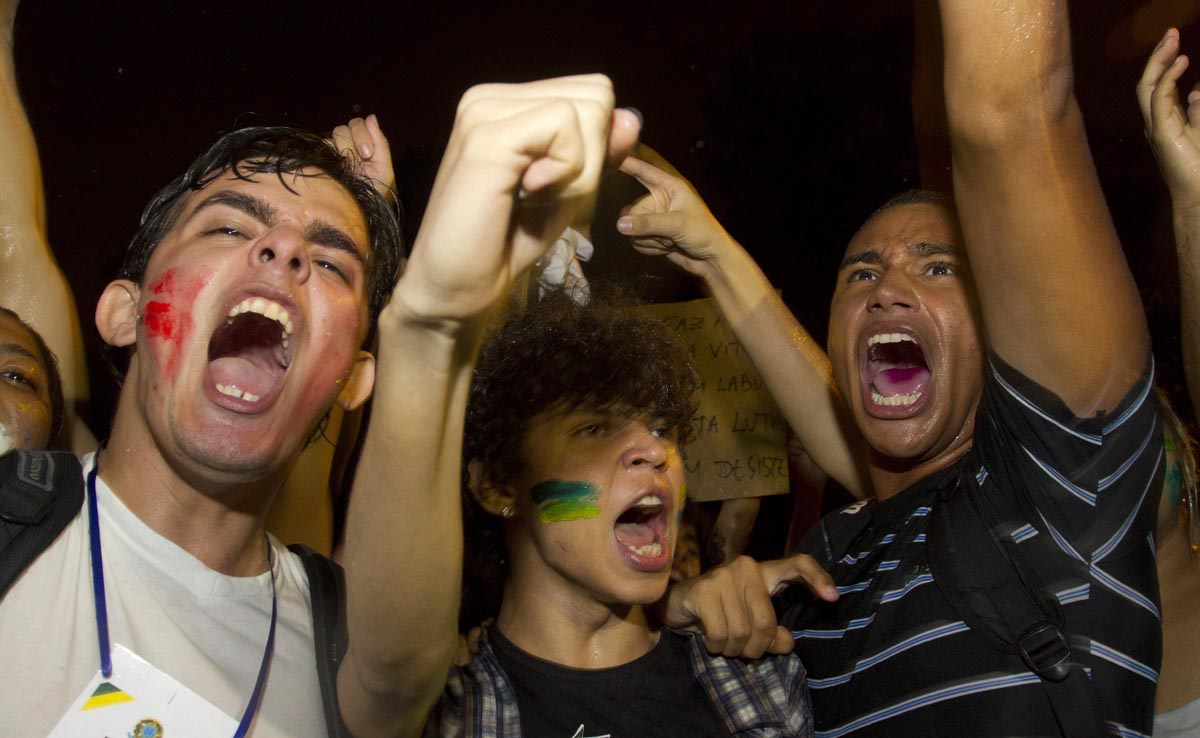
Tens of thousands of Brazilians took to the streets on Wednesday in new demonstrations calling for a crackdown on corruption and better public services, just a day after Congress ceded to some of the key demands galvanizing protests across the country.
In Belo Horizonte, authorities said 40,000 people gathered to demand improved education and healthcare as Brazil's third-largest city hosted a Confederations Cup semi-final soccer game between Brazil and Uruguay in a warm-up for the 2014 World Cup.
Hooded youths threw stones at police who used teargas to stop marchers 1-1/2 miles from the stadium. A banner hung from a bridge read "FIFA go home" in reference to the world soccer body. FIFA's president, Sepp Blatter, attended the game, which was not disrupted by the protests.
In Brasilia, demonstrators kicked soccer balls over a police cordon in the direction of Congress in a peaceful protest against the billions of dollars Brazil has spent building new stadiums for the global tournaments under President Dilma Rousseff. Protesters say funds should have been used to improve public services including health, education and transport.
Police deployed in force and shut off traffic in the central esplanade of Brazil's modernistic capital, where federal ministries allowed their employees to go home early.
About 2,000 people marched peacefully in the northeastern city of Recife to denounce corruption.
Almost two weeks after a wave of discontent suddenly erupted into Brazil's biggest protests in 20 years, the country's shaken political leadership is scrambling to respond to popular pressure for change.
The Senate approved a bill on Wednesday that stiffens sentences for corruption, one day after Congress rejected a constitutional amendment that limited the power of federal prosecutors to investigate crimes, a measure protesters saw as a self-serving move by politicians to avoid corruption probes.
"Our representatives are listening to the people now. We are creating a new political consciousness," said Amanda Caetano, spokeswoman for a group in Brasilia demanding an end to the privileges enjoyed by politicians.
Demonstrations on Wednesday were smaller than protests last week, which peaked when 1 million people poured onto the streets on Thursday, causing civil unrest rarely seen in the recently booming economic powerhouse of South America. Political analysts say sporadic protests may become a feature of daily life in Brazil for the foreseeable future.
In another response to the protests, the lower house of Congress voted overnight in favor of a bill allocating royalties from future oil production to education and health programs. A Senate committee approved a measure that would cut taxes on public transport, making it easier for cities and states to lower bus and subway fares.
It was a relatively small protest against higher transport fares, and the ensuing police crackdown, that ignited the unrest in Latin America's largest nation earlier this month.
Several Brazilian cities have since agreed to roll back the fare increases, but the leaderless protest movement has widened its focus to a litany of grievances, from deficient public transit services to a "gay cure" bill introduced in Congress by Evangelical lawmakers that would allow psychologists to treat homosexuality as an illness.
One common theme remains: a deep distrust of a political class that is widely viewed as corrupt, overpaid and more worried about serving itself than society at large.
Most of the protests have unfolded peacefully, though some have been marred by vandalism and looting. On June 20, for instance, a demonstration by an estimated 40,000 people in Brasilia turned violent when vandals threw Molotov cocktails at the building that houses Brazil's Foreign Ministry.
Calls for Political Reform
The demonstrations have jolted politicians of all stripes and clouded the outlook for the left-leaning Rousseff, who is expected to seek a second presidential term next year.
Rousseff sought to defuse the protests by proposing on Monday that Brazil hold a plebiscite convening a constituent assembly to make the political system more accountable and transparent.
The proposal lasted 24 hours. Rousseff withdrew the plan for an assembly late on Tuesday after politicians and lawyers questioned the legality of a president bypassing Congress to amend the constitution.
Her Workers' Party and its allies in the coalition government are now discussing a national referendum on political reforms later this year after consulting Congress.
Many, including the chief justice of Brazil's Supreme Court, doubt that a meaningful overhaul of the political system will prosper without input from the public.
Political analysts are waiting to see how the protests will affect Rousseff's approval ratings in new opinion polls. Her popularity had already begun to slip before the protests, hurt by concerns about high inflation and a sluggish economy.
(Additional reporting by Maria Carolina Marcello; Editing by Todd Benson, Paul Simao and Mohammad Zargham)
3 WAYS TO SHOW YOUR SUPPORT
- Log in to post comments















